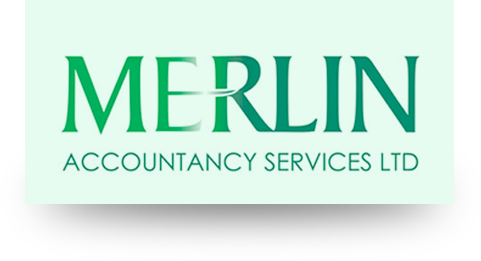It’s that time of year when every blog is about self-improvement. I’ve just read that one in five of us want to lose weight in 2022. One in ten want to exercise more. Yet we know that most New Year’s resolutions are a memory by February. If they don’t work, is there a better approach? Can you apply it to your business?
Our clients at Merlin have a challenge, or a problem to solve. It could be anything from wanting to improve sales to retiring early. We can help. But we’ve learnt that if someone wants to achieve things with their business, they must understand their motivation.
This is why New Year’s resolutions are thin gruel. They’re a fun tradition but they’re too throwaway to be really helpful. For most people, they’re unrealistic from day one. Many don’t keep track of progress, or soon forget about them.
Goal-setting is better
All of this means you need something more reliable – especially for your business. In this article, we go into the importance of proper goals. There are some tips for making them work for you. We’ve also included some steps for setting and defining ‘good’ goals, so you can see how to use them to make progress.
How to use different kinds of goals
We help our clients think about both outcome and process goals. An outcome goal is big and ambitious. For example, you may have a profit target for ten years ahead. Or you may be starting to think about selling a business that’s been your baby all your adult life.
Outcome goals won’t usually work on their own. They can feel too distant, which means they might not give you the drive you’re looking for. We fill this gap with small steps on the journey, called process goals. Every step gets you closer to the bigger outcome goal.
Let’s take the ‘improving profits’ example. The outcome goal must be achievable, otherwise you’re setting yourself up to fail. So the first thing to do is identify a timeframe that makes sense. We’d then work back and fill the weeks with regular process goals. At first, these might be as simple as getting your opportunity clear – can you improve sales, costs or both? Then one month in, briefing those around you on how you’re going to do it. Two months in, starting a new marketing programme of marketing and sales visits. Six months in, celebrating your new customers.
A framework for goal-setting
At Merlin, we have a framework for goal-setting that we offer to our clients. It’s helpful to have a critical, numerate friend to walk you through the process. But you can practise your goal-setting right now with this five-step approach.
1. Write down your outcome goal
Use the SMART approach. It gives us a way of judging how well thought-out your goal really is:
- Specific – Is your end point clear? ‘Retire with a lot of money’ is vague (and sounds the same as everyone else).
- Measurable – Fix numbers to the goal. ‘Retire with a £300k lump sum’ is better because it is precise.
- Achievable – Based on experience and research, is it do-able? If you’re not sure, this is something Merlin can help with.
- Realistic – Thinking about family and other commitments, how much time and energy can you bring to your goal? It may be better to start smaller for now.
- Time-bound – Can you say when the results will be achieved? ‘Retire with a £300k lump sum by 2030’ is stronger than ‘Retire when I can afford to’.
2. Channelling your motivation
Add some notes on your motivation. You could cover:
- Why do you want to achieve this goal?
- If you don’t attempt it now, how will you feel in five years’ time?
- Do your business partners or family want to see you reach this goal?
- How will they feel when you succeed?
3. Including everyone
Now write down how reaching this goal will change things for you and your loved ones:
- Would it change your view of yourself? Why?
- How would it change the way that your team, partner, family and friends see you?
- How might it help or inspire other people – inside and outside the business?
4. Capture your process goals
It usually takes some time before you reap rewards from your hard work. So this is where you convert your outcome goal into chunks. You’ll use them to track how you’re getting on, giving you a sense of accomplishment.
- Break the goal down into steps – ideally at least one per week
- Put them in your calendar, and protect them
- Try to pick out a regular milestone – achieving this will fuel another wave of motivation.
5. Be ready for obstacles
Life has a habit of getting in the way of your process goals. So predict a handful of common obstacles so you’re prepared. Begin to solve them right now, like this:
- Obstacle – Early evening is the best time for me to think about my business, but I get distracted as soon as I’m home
- Solution – Interrupt your normal routine. Perhaps you can find a quiet place at work or on the way home? Use it to give yourself 30 minutes of clear thinking a few times a week.
If your obstacles are proving hard to overcome, ask for advice from others who have achieved similar goals.
Keep things moving
You can keep updating your process goals as they’re bound to need it. That’s OK. Their role is to provide urgency and keep you broadly on track. Every little step is just one bit better. It compounds, driving the kind of progress you’re after. On the way, it will deliver better results for your business and positive emotions that make life worth living.
How Merlin can help
To find out more about our approach to setting and managing goals, please contact us. Our clients say that it’s useful to have a critical friend prodding their thinking, especially one who understands the numbers. If you’re not already a client, please get in touch here. You’ll find us a good fit if you’re looking for an accountant as an investment – rather than just a cost.

